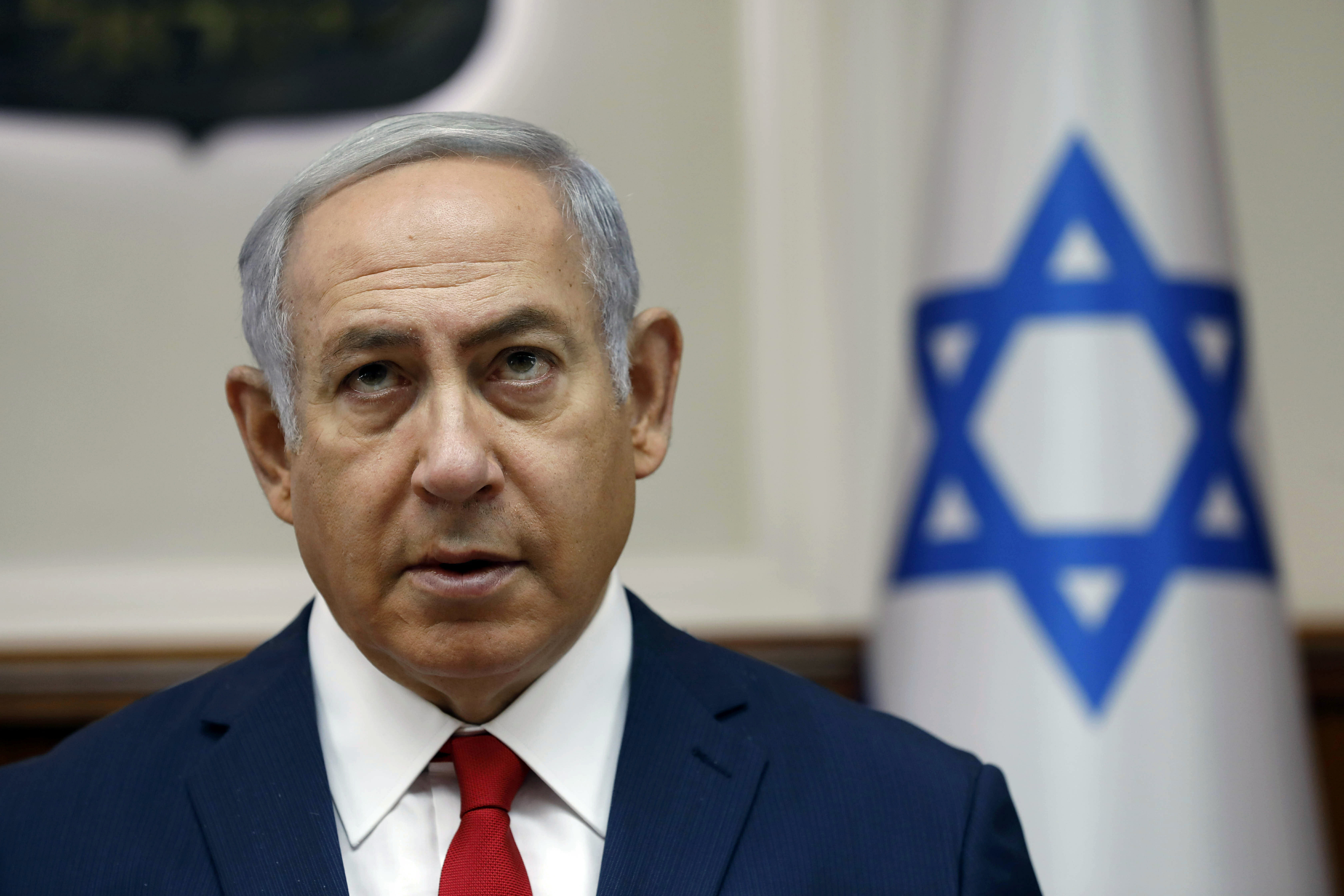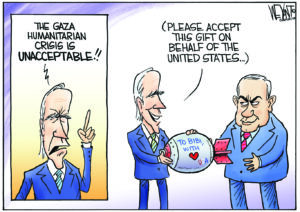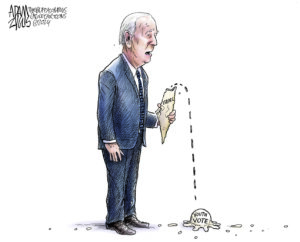Benjamin Netanyahu Is Cozying Up to Europe’s Worst Authoritarians
Critics fear his recent maneuverings signal Israel’s “moving away from the values of a liberal democracy.” Israeli Prime Minister Benjamin Netanyahu. (Abir Sultan / AP)
Israeli Prime Minister Benjamin Netanyahu. (Abir Sultan / AP)
“Europe needs to decide whether it wants to live and prosper, or it will disappear.” Those words belong not to former White House senior adviser Steve Bannon or the chairwoman of the ultranationalist Alternative for Germany, Frauke Petry, but Israeli Prime Minister Benjamin Netanyahu, who shared them with his Hungarian counterpart, Viktor Orban, in Budapest last year. As Noa Landau argues in Haaretz, this was not merely a prescient glimpse of Israel’s “systematic warming” to the Visegrád Four but an abandonment of the governing principles upon which it claims to pride itself.
In Landau’s telling, the linchpin of this burgeoning alliance is the migrant crisis engulfing Europe and the Middle East. Both Poland and Hungary, which are led by far-right governments, have advocated for screening centers within their borders, while European Union leadership has balked at such measures. Slovakia and the Czech Republic have ostensibly center-right governments, but the former has made no secret of its distaste for migrants, and the latter’s president, Milos Zeman, is a fervent Trump supporter with a long-reported history of Islamophobia.
“Israel has been exploiting this internal, complex and delicate European dissent in recent years in order to change the way decisions about its politics are made in the EU,” Landau contends. “Observers in Brussels point to a chilling effect created by the alliance between Israel and the V-4 on the ability to issue joint statements in the name of all 28 EU members.”
Netanyahu has already seen returns on his diplomatic investment. In May, Israel successfully thwarted the EU from condemning the United States’ relocation of its embassy. According to the Times of Israel, objections by “Hungary, the Czech Republic and Romania helped Jerusalem stop the statement.”
As the embassy incident reveals, it’s not just V-4 nations that Netanyahu is cultivating. Israel has developed ties to Austria, Romania, Bulgaria, Lithuania, Cyprus and Greece, many of whose democracies are comparatively weaker than those in the rest of Europe. Fueled by Chinese investment in the region, Berlin is “preparing for the possibility that states in Central and Eastern Europe may leave the EU and set up a European-Asian autocratic union,” writes Landau.
The development would appear to suit Netanyahu just fine. Not only has he lent support both tacit and explicit to some of these countries, but he’s done so at a time when at least one has attempted to exculpate itself of its crimes during World War II. On Monday, the U.S. Holocaust Memorial Museum joined Yad Vashem and Israeli Holocaust scholars in denouncing an Israeli-Polish statement on Poland’s role in Shoah, claiming it “does not secure a future for Holocaust education, scholarship and remembrance.” (In January, Poland passed legislation that would make accusing the country or its people of complicity in the mass exterminations a criminal offense.)
All of these maneuverings point to a single conclusion: Netanyahu, who narrowly defeated the Labor Party’s Isaac Herzog in 2015 after appealing to his country’s worst instincts, and who counts the Kingdom of Saudi Arabia among his closest allies in the region, has openly embraced authoritarianism.
“Israel has traditionally preferred strengthening ties with specific countries, but in the past, it recognized the importance of its ties with the EU, in terms of common interest and values,” warns Dr. Nimrod Goren of Mitvim, the Israeli Institute for Regional Foreign Policies. “In recent years there has been a change, and the ties with the Visegrad group reflect this well. The choice of these countries attests to Israel’s moving away from the values of a liberal democracy.”
Read Landau’s analysis in its entirety at Haaretz.
Your support matters…Independent journalism is under threat and overshadowed by heavily funded mainstream media.
You can help level the playing field. Become a member.
Your tax-deductible contribution keeps us digging beneath the headlines to give you thought-provoking, investigative reporting and analysis that unearths what's really happening- without compromise.
Give today to support our courageous, independent journalists.






You need to be a supporter to comment.
There are currently no responses to this article.
Be the first to respond.